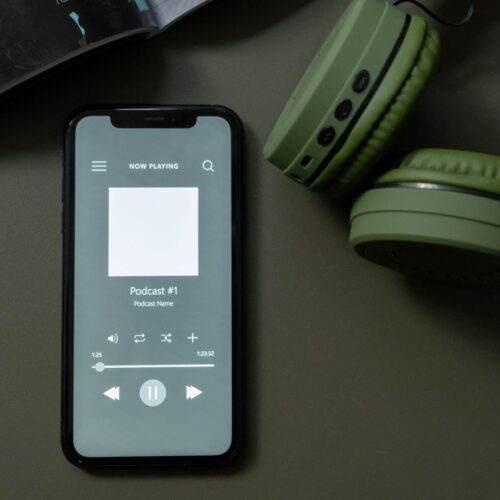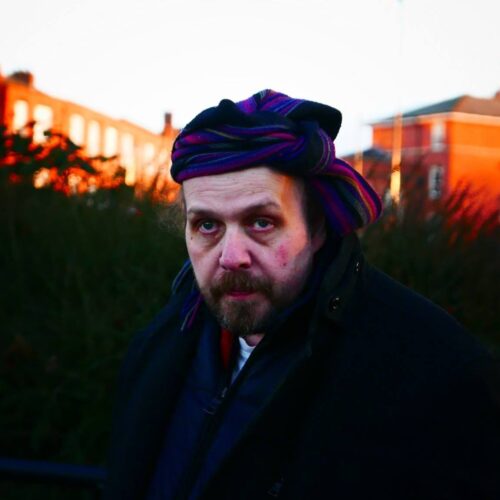
Erotic music
There seems little doubt in my mind that the two major stimuli to the creative activity of our greatest composers are sex and death. Perhaps they are linked; they are closely allied in the natural world.

Plants not only devise remarkable methods of procreation, but can spring as vigorously from natural disasters and chemical warfare as from weed killers sprayed over garden paths. Death shall have no dominion, as the poet wrote – and indeed it doesn’t.
The impulse to reproduce is common to all mature living things and drives the life cycle remorselessly onwards, even to destruction, for dinosaurs were surely as enthusiastic to breed even if the developing world was unable to accommodate them. Our mature species, flatteringly now called ‘wise man’ or ‘homo sapiens’, has the magnificent advantage over other life-forms of being able to invent and imagine, reason and deceive. Among these advantages the most remarkable is creativity: poets and writers in forms of words; artists in everything from visualized fantasy on canvas to stone carvings and cities; and composers in the field of sound.
But composers have yet another advantage. Because explanations are not needed, they can write erotic music quite safely, invading the most polite of audiences and leaving interpretation to the listener’s own instinctive ability to accept or deny, dependent largely on what they choose to believe. The programme notes are unlikely to tell the story, which may for ever be hidden in secret diaries. An elderly pianist colleague of mine remembers with considerable amusement a recital he once gave to a sedate girls school audience, at the close of which the headmistress asked him to play Liszt’s Liebestraum. Had she known what it was about, she would have forbidden this handsome young man, as he then was, from performing – and the hundred or so girls from listening to – such a piece. Liszt’s music is full of sexual ambiguity, often taking refuge in divinity – something Messiaen’s sincerity found unnecessary a century later in Turangalila.
Opera provides an obvious context for such obscurity, and Mozart does it superbly. But beyond the evidence of a libretto why assume that Bach’s two marriages and twenty children (not least the death of nine of them) should make us any more austere about what feelings he conveyed in his music? Many of Haydn’s pieces were inspired by his sexual desires, as it was also with Brahms whose unmarried status allowed him to indulge passions that poor Haydn had to hide. Wagner’s music is engulfed with far more sex than his energetic life was able to contain, and it is difficult to separate great composers like Chopin, Tchaikovsky, Debussy, Skryabin, Richard Strauss and Rakhmaninov from the sexuality that drove them all to devise the sensual scores upon which much of their reputations rest.
Ravel’s lifelong sexual repression allowed him to fill his music with an erotic passion that he excluded from his precise and well ordered daily life. Even Schoenberg, perhaps one of the most humourless among those we celebrate, was clearly driven by sex in Transfigured Night and Gurrelieder. However, here a reversal of the observation may prove interesting. Perhaps it is a lack of erotic passion that makes music less appealing to us, for when Schoenberg adopts a more cerebral, carefully ordered style, the music loses its human roots. It becomes a vehicle for pious intellectualism and a refuge for those who fear sex and death, the building blocks of all life.
We can disguise ourselves – but beneath we are all very similar. At an open orchestral rehearsal of new pieces, I once asked a student composer what he was aiming to achieve with his elaborate and quite exotic score. “Nothing much”, he said, “but it pulls the birds!”






“It becomes a vehicle for pious intellectualism and a refuge for those who fear sex and death, the building blocks of all life.”
I have to say that I can’t agree. I have no fear of sex and little of death but revel in the intellectualism of his “cerebral, carefully ordered style”
It’s interesting that for the most part eroticism is only alluded to in classical music whereas in pop music, at least in the last fifty years or so it is totally overt. And what better symbol of rampant male sexuality than the electric guitar.
For my money Carly Simon’s ‘Nobody does it better’. Is the perfect combination of highly suggestive words and highly sexually charged theme sung by the superb Carly. ThenBond movies have produced a string of such themes but this is the best.
While agreeing at least 97% with what Patric has said there are many 20th Century scores that are choc-a-bloc full of eroticism and emotional tension, and so rather than feeling much has been lost I would actually speculate that due to high intellectualism and external history in the 20th century it brought about an extreme sexuality too in reaction to these imposing external and internalised pressures.
One only has to think of Britten’s wonderful “Death in Venice” and the underlying sexual tensions of “Peter Grimes”(Ellen Orford and Grimes in particular). There is also the lush eroticism inherent in the music of Tippett whether it be symphonic, chamber, or opera. What about the sexual tensions and exuberance of Maxwell Davies’s “Miss Donithorne’s Maggott”, a cerebral score imbued with heavy emotionality and sexuality even if it runs underneath the actual action of the music theatre piece. There are many other fine examples that stand out in sharp relief from the modernist period. One thing we must guard against though is confusing sexuality with great emotional passion, they are not the least similar.
Wasn’t it Sigmund Freud who suggested that all art was the seduction impulse “misdirected” ? A human equivalent of the Satin Bower Bird ? I think there are two distinct ideas here though, the expression of eroticism through art and the use of art to “pull the birds” (and blokes ? – that opens up a whole new can of worms 🙂 )
I’m surprised by the absence of Schubert/Goethe in the main article – all those Red Roses plucked (or not) !
‘Because explanations are not needed, they can write erotic music quite safely, invading the most polite of audiences and leaving interpretation to the listener’s own instinctive ability to accept or deny, dependent largely on what they choose to believe’
This is equally true of any non-erotic meaning or expression in music. Unless a composer or the text that has been set makes it clear, no-one can say with any certainty what is being expressed in a piece of music, and for me its ability to be moving is not usually dependent on knowing, interesting though it may be to speculate.
I would rather not know details of the sex lives of my favourite composers. It usually means their womenfolk were badly treated. I love Debussy’s music but when I heard a recent series on hom on radio I really went off him as a person. Egotistical, power driven lust and immaturity, selfishness and disregard for the feelings of others- is this eroticism?